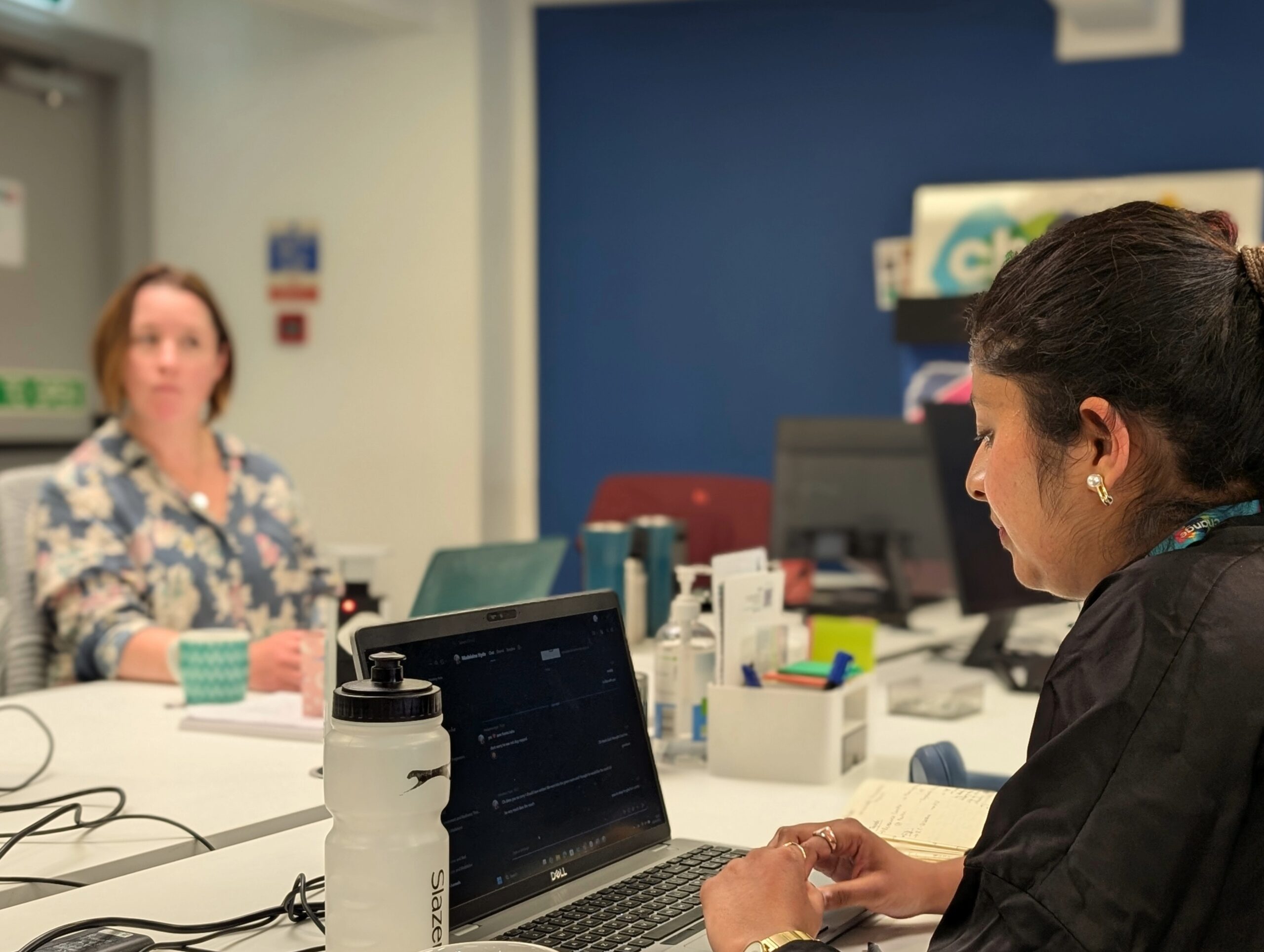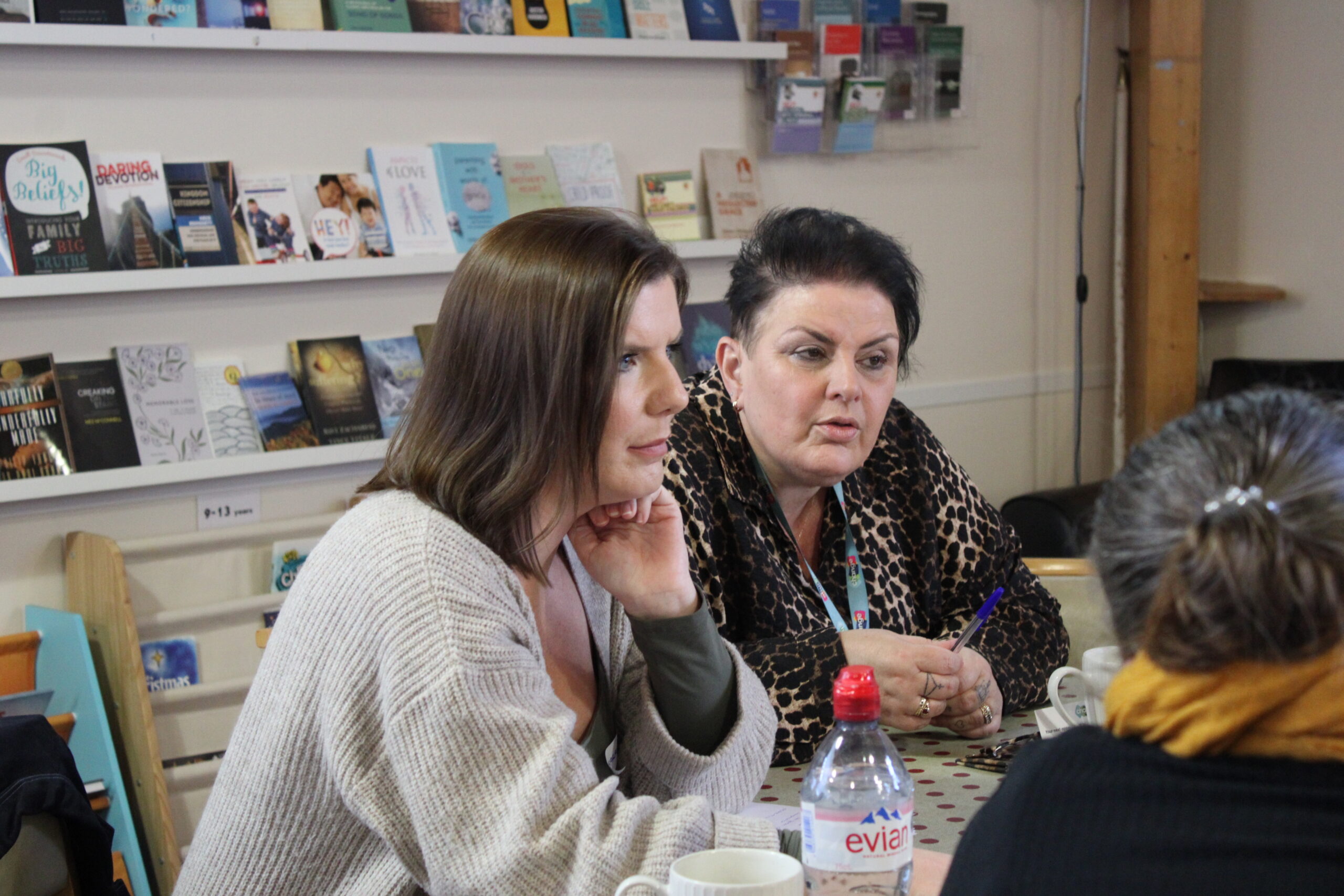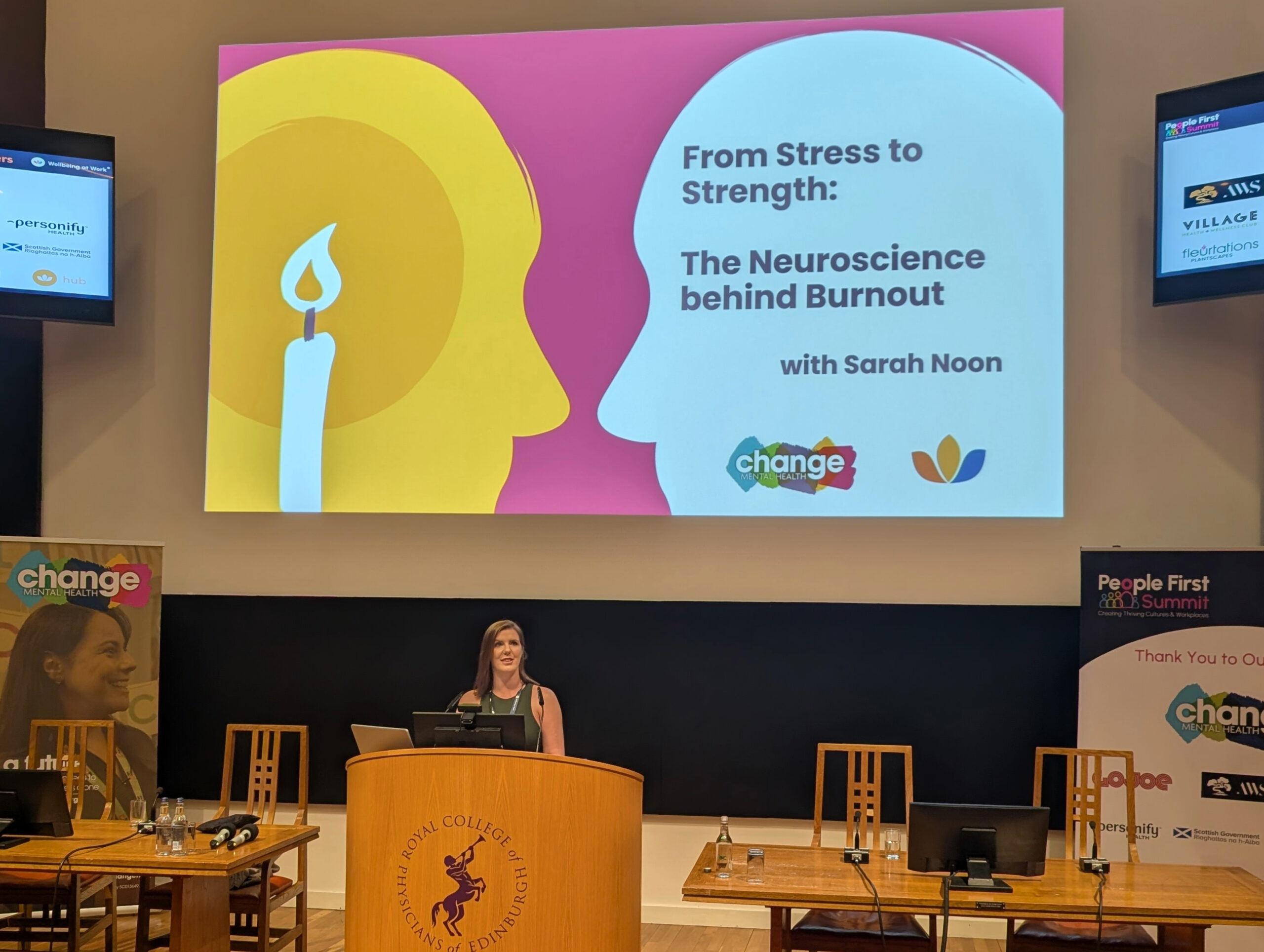Behind the scenes: The emotional toll of mental health support work
Practitioners of National Services talk about the reality of mental health support work — managing the toll, peer support and early intervention.

Every day, across Scotland, people reach out for help. Some make a phone call, others send an email. Behind those contacts are dedicated workers who provide listening, guidance, practical support and reassurance. At Change Mental Health, three services answer thousands of such requests each year: Distress Brief Intervention (DBI), National Advice and Support Service (NASS) and Suicide Bereavement Support (SBS).
These mental health support services provide early intervention, advice and compassionate listening that can prevent difficulties from escalating. DBI is a compassionate programme designed to support people quickly and connect them to longer-term help. NAS and SBS do not have a set timeframe, offering ongoing advice, guidance and emotional support as long as it is needed. Understanding what this work looks like behind the scenes shows not just the reality of the role, but also what makes access to mental health support possible when it is needed most.
The people on the end of the line carry stories of worry, loss and resilience. They also carry the responsibility of ensuring that help is available quickly and in an accessible way, so that challenges can be addressed early rather than left to deepen. Their experiences reveal both the emotional toll of the role and the strength of the teams who make this essential work possible.
recognising the emotional toll of mental health support work
Working on a mental health support line is emotionally demanding. Contacts may involve people under pressure, carers feeling stretched or families seeking guidance after a suicide. Practitioners recognise the impact in different ways.
For Sarah King in SBS, the first signs are feelings of overwhelm and self-doubt. “I start questioning my own decision-making,” she says, adding that talking it through with colleagues helps her find balance. Others, such as Jill Patterson and Tom Fricker, describe physical effects. Jill reports feeling tightness in her throat and experiencing difficulty breathing, while Tom notices a change in his speech. It becomes slower and calmer, but the impact of the situation can usually be felt afterwards.
In NAS, the effects often linger long after work has finished. Abbie Shepherd explains that she knows a case has touched her deeply if she is still thinking about it after hours. Maddy Hyde adds, “What gives me hope is reminding myself of the fact they have reached out to Change Mental Health by choice, which is already a great sign that this person wants to get themselves to a better place.” For Graham Caie, the impact is visible in his motivation, leading to lower concentration, irritability and a sense of mental fatigue.
In DBI, Gary Kirkwood says the trigger can be when a client’s experience mirrors something painful from his own past: “If I begin to feel triggered emotionally, I use breathing or coping statements to remind myself that I can manage these emotions well.” At a leadership level, Kimberley Irwin acknowledges that the pace of the service itself creates pressure: “Our staff have to work at a fast pace whilst remaining calm in front of the client,” she says, noting that paperwork and training add to the strain.
finding ways to cope
Coping strategies are crucial for keeping services accessible. When staff take care of themselves, they are better equipped to continue supporting others at the right time.
Coping strategies vary but for many, movement is the first line of defence. Tom calls it “the best medicine”, explaining that he feels steadier when walking, running or cycling outdoors. Jill also relies on rhythm, whether through daily walks, yoga or simply blasting music and dancing in her kitchen after a long week.
Others turn to mindfulness. Gary explains:
“If I begin to feel triggered emotionally, I use relaxed breathing as an anchor. I remind myself that I am okay and that I can manage these emotions well.”
Boundaries help too. Maddy says, “Holding on to the fact that my role has boundaries allows me to rest, even after a hard call.” Sarah echoes this, emphasising that “good time management skills and boundaries” keep her balanced. Abbie adds that she manages difficult calls by reminding herself after hours that there is nothing more she can do.
Routine adds structure. Graham talks about his personal ‘toolbox’: regular sleep, exercise, cold-water swimming, time with family and pranayama breathing. At service level, Kimberley stresses organisational responsibility:
“We will put short-term caps on certain referral factors if it is affecting a staff member’s personal life – for example, bereavement.”
the strength of peer support
Peer support is part of every service at Change Mental Health. Sometimes it helps those reaching out and sometimes it supports the staff themselves. For people working remotely, daily check-ins and a focus on wellbeing help create a safe and supportive environment. Staff value these moments to share, connect and support each other, especially after tough calls.
In DBI, Gary describes the daily Teams group as “a chance to offload, process or bounce ideas.” In NAS, Abbie values weekly peer sessions and the knowledge that “you can reach out to a colleague and people will make time for you.”
SBS staff stress the importance of everyday connection. Sarah says her team “starts each day with a check-in call, keeps in touch on Teams and links with the Penumbra team in the afternoon.” When her caseload grows too heavy, colleagues step in to share referrals. Jill describes how sharing emotion can be enough: “I don’t necessarily need advice… I just need to share the story of why this made me so emotional.” Tom adds that reassurance from peers helps him overcome imposter syndrome.
From a leadership perspective, Kimberley outlines how DBI builds peer support into its structure:
“Daily support measures are in place – a morning meeting, Peer Support Café at 3pm, check out in the evening and an Advice and Support Teams channel. Reflective practice every four weeks and fortnightly team meetings help create that office environment online.”

advice for starting a career in mental health support work
Asked what they would tell someone new in the role, everyone responds with consistency. “Don’t be ashamed to rely on colleagues. Trust your instincts but remember you have a team around you,” reflect on her own experiences Abbie. Maddy adds that unpredictability is inevitable, “but with time you learn how best to respond.”
From DBI, Gary encourages persistence and patience, which allows you to grow your confidence with each case you handle. Kimberley offers guidance to leaders: “Always make the time for your staff – even if it’s 60 seconds. Without dedicated staff, you don’t have a service. Never sit from the sidelines and just be present.”
Sarah emphasises communication: “Keep the lines of communication open. Be mindful of time management and boundaries, seek training and be confident in safeguarding procedures. Step away after a tough call if you need to.” Jill reinforces the importance of being open about anything that worries or overwhelms you, even if it’s small or seems mundane.
Tom adds how important self-awareness is: “Know yourself and be honest when you need support. Don’t sit on things you’re worried about or be afraid to ask a stupid question – we’ve all been there.” Graham concludes pragmatically: “Develop your own toolbox – sleep, exercise, reflection, whatever works for you – and use it.”
carrying the weight together
Support work is demanding and can be unpredictable. Helping people through their hardest moments takes a strong system, a supportive team and personal resilience.
Access to mental health support depends on both the people behind the scenes and those on the frontline. These practitioners listen, reflect and offer support when it matters most. Their stories show that, while the work is tough, they face it together by sharing strategies, experiences and a commitment to helping before problems become crises.
support
Our National Advice and Support Service can help you and people you care for with mental health concerns and money worries.
We can link and signpost you to relevant local and national support, including our own Change Mental Health services, as well supporting with debt, grants and benefits.
The service is open Monday to Friday, 10am to 4pm (closed for lunch between 12.30pm to 1.30pm). Contact 0808 8010 515, email advice@changemh.org or fill in the form on the service webpage.
For full details about the service, visit the National Advice and Support Service webpage.
If you are interested in partnering with us, and bringing Me & Money to the young people you work with, please contact: youngpeople@changemh.org
mental health training
At Change Mental Health we also offer workplace training that helps staff look after their own wellbeing and support colleagues.
Our courses cover awareness, resilience and practical tools that make a difference in day-to-day support work.
Explore our training offer, get in touch with the team or register your interest here.





